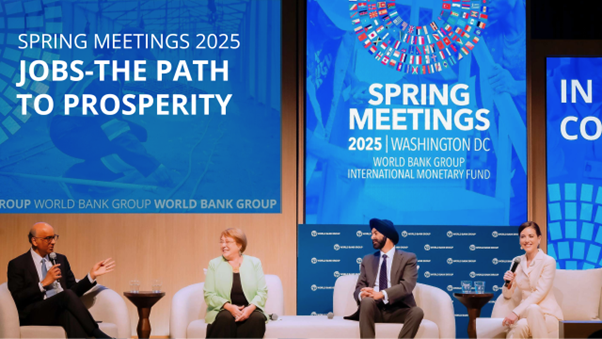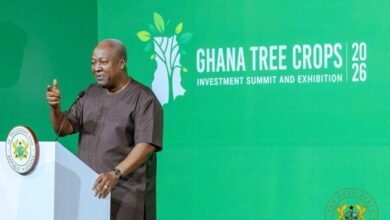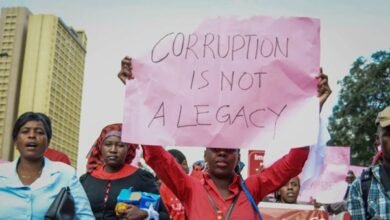IMF and World Bank annual meetings : Africa at the heart of reforms in a changing global economy
The annual meetings of the Bretton Woods institutions were held in Washington against a backdrop of global economic uncertainty. While debt, development financing and governance dominated the discussions, these gatherings also revealed a turning point: the need to rethink Africa’s role in global economic growth and stability.

Between the war in Ukraine, the conflict in Gaza, worsening climate change and the rise of extremism in many regions, the world economy is walking a fine line. Social disparities are widening, public debts are reaching record levels and social tensions are multiplying, fuelled by inflation and the slow post-pandemic recovery. It was in this climate of uncertainty that the International Monetary Fund and the World Bank met in Washington from 13 to 18 October 2025, bringing together leaders, ministers and experts to try to redefine the economic and social priorities of a world seeking balance.
Geopolitical tensions, the effects of climate change and the fragility of supply chains continue to weigh on the global economy
The major economic meetings of the year confirmed what many had anticipated: the world is moving at a slower pace. According to the IMF’s latest report, global growth is expected to reach 3.2% in 2025, before falling to 3.1% in 2026. Geopolitical tensions, the effects of climate change and fragile supply chains continue to weigh on activity.
An “impressive resilience” from Africa

In this context, Africa sought to make its voice heard — balancing demographic dynamism, growth potential and financial vulnerability. The Director of the IMF’s African Department, Abebe Aemro Selassie, praised the continent’s “impressive resilience,” with regional growth estimated at 4.1% in 2025. However, he acknowledged that “some countries, particularly those affected by conflict or dependent on commodities, continue to face challenges in raising per capita income.”
African countries must be able to discuss and challenge the methods used to assess their risk

Debt once again took centre stage. The IMF warned that the cost of domestic borrowing remained “high” in many African countries, pushing governments to turn to local banks rather than international markets — a choice that weakens economies and reduces private investment capacity. The Governor of the South African Reserve Bank, Lesetja Kganyago, called for greater transparency from rating agencies, stressing that “African countries must be able to discuss and challenge the methods used to assess their risk.”
We are witnessing one of the greatest demographic shifts in history: with the right investments, based not on need but on opportunity, Africa can become a powerful engine of global growth
For his part, the President of the World Bank, Ajay Banga, emphasised Africa’s potential to drive global growth. According to him, “we are witnessing one of the greatest demographic shifts in history,” recalling that by 2050, one in four people will live in Africa. He added: “With the right investments, based not on need but on opportunity, Africa can become a powerful engine of global growth.”
But beyond the speeches, concrete progress on global governance reform remains slow. The G24, which brings together developing countries, lamented the lack of progress on redistributing voting rights within the IMF and the World Bank, and called for better access to concessional financing as well as greater transparency on public debt.
The urgency of achieving fairer financing mechanisms
The conclusions of these meetings leave a mixed impression. For the world, they confirm the need to adapt financial institutions to an increasingly multipolar economy, where North–South balances must evolve. For Africa, they highlight the urgency of obtaining fairer financing mechanisms to turn its economic potential into sustainable development.
The modernisation of the international financial system, green investment and debt reform feature among the priorities of the post-Washington agenda. The question now is whether the promises made will translate into concrete action. As Abebe Aemro Selassie summed it up: “Africa is not asking for charity, but for fair partnerships.”






